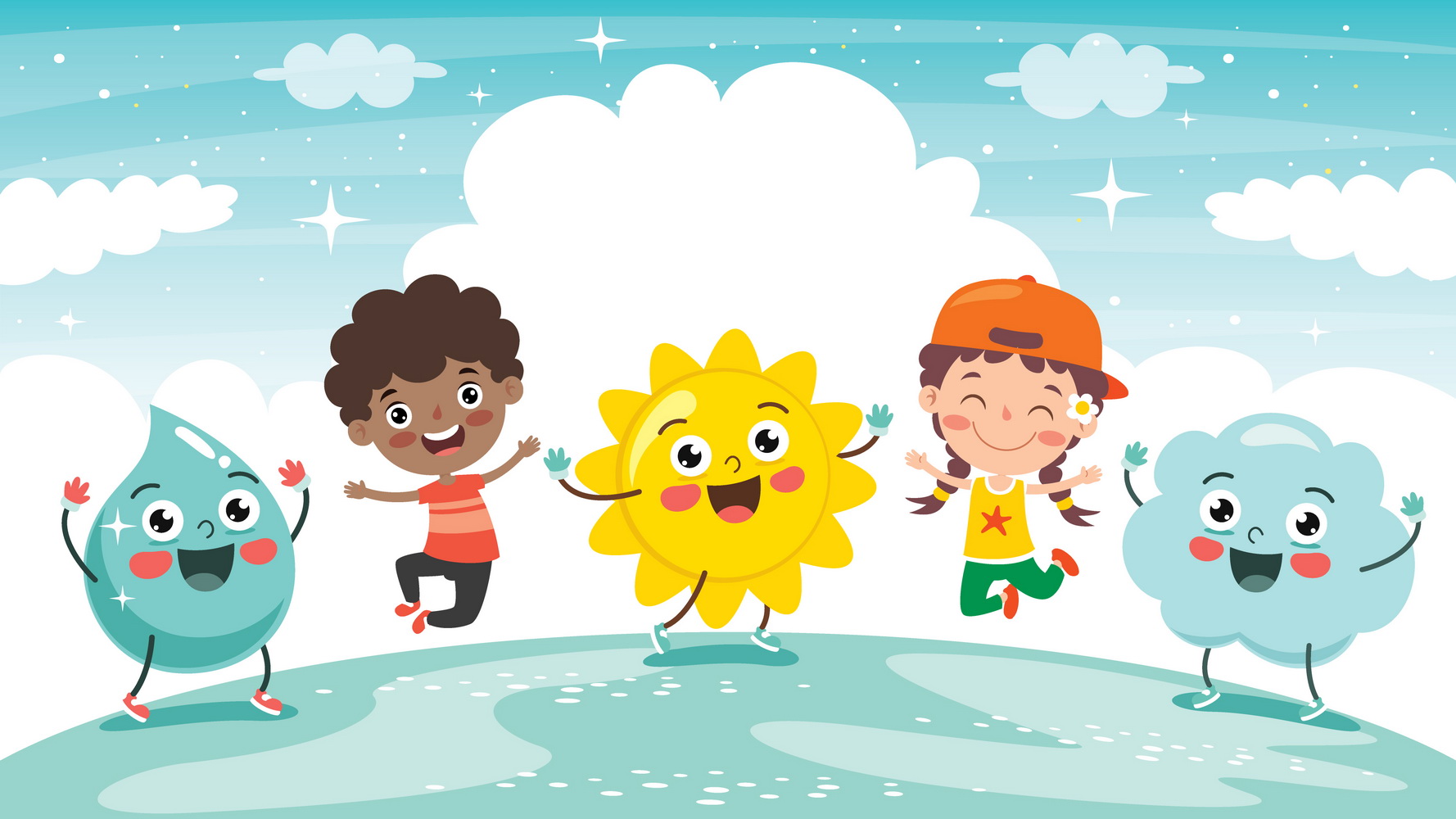Reading readiness Normal Worksheets for Ages 5-6
6 filtered results
-
From - To
Welcome to our Reading Readiness Worksheets page for ages 5-6! Designed to support young learners, these engaging and interactive printable worksheets focus on foundational reading skills. Our expertly crafted activities promote phonemic awareness, vocabulary development, and comprehension strategies, making learning fun and effective. Each worksheet encourages critical thinking and reinforces essential skills through colorful visuals and relatable themes. Perfect for home or classroom environments, these resources foster a love for reading and prepare children for future success. Explore our collection today to spark curiosity and ignite a passion for learning in your little ones!
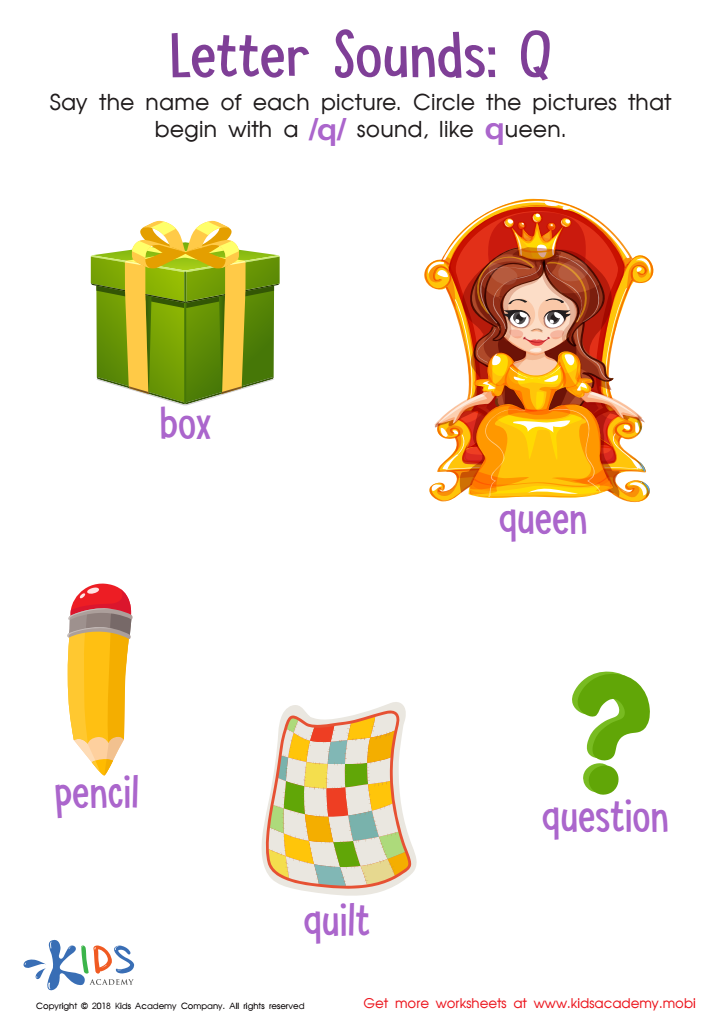

Letter Q Sounds Worksheet
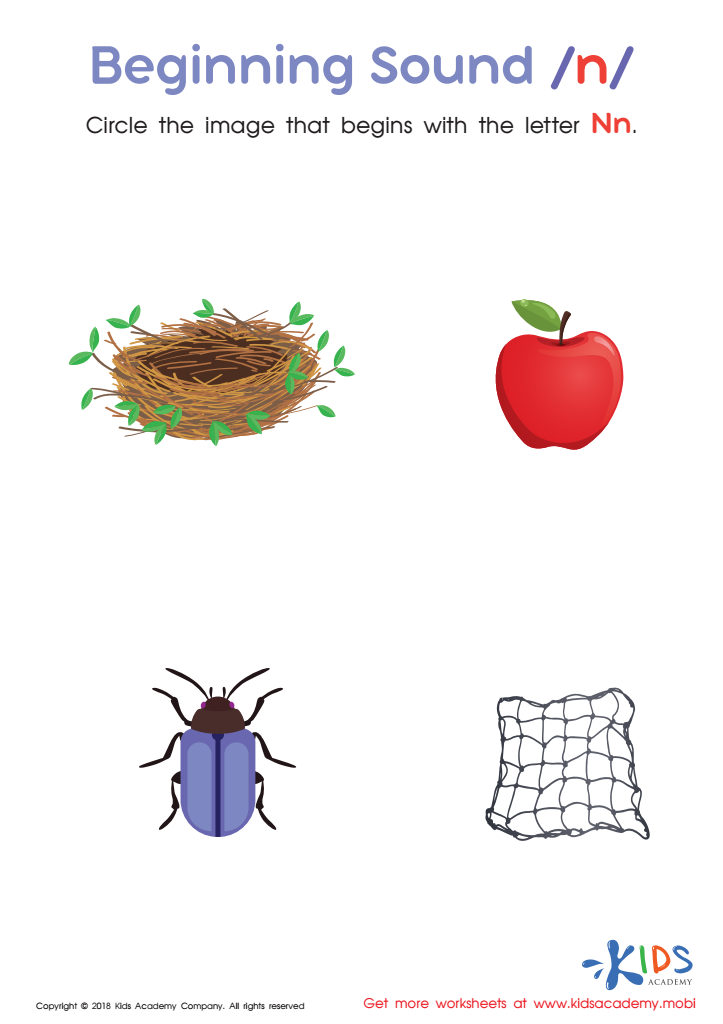

Beginning Sound «n» Worksheet
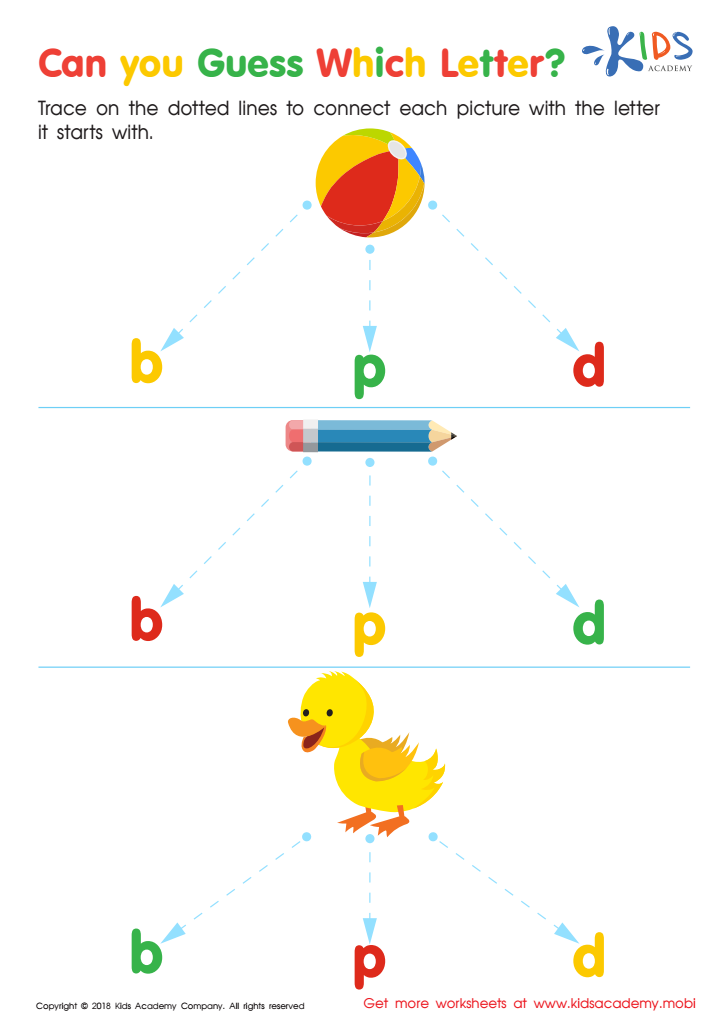

Can you Guess Which Letter? Worksheet


Phonological Awareness: Assessment 1 Worksheet
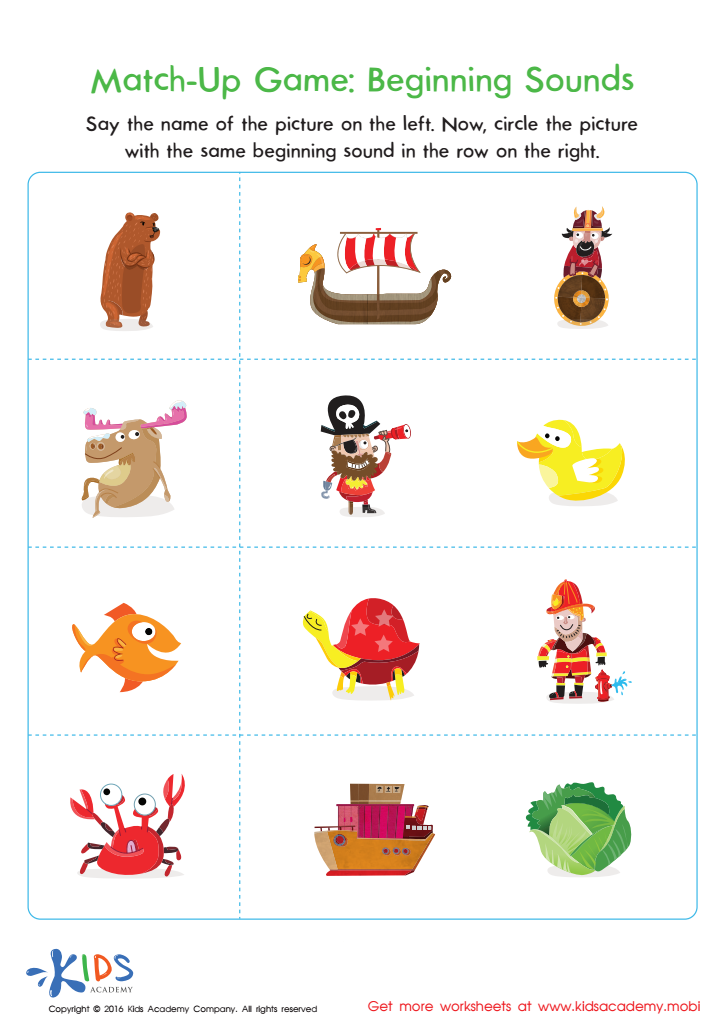

Match–Up Game: Beginning Sounds Worksheet
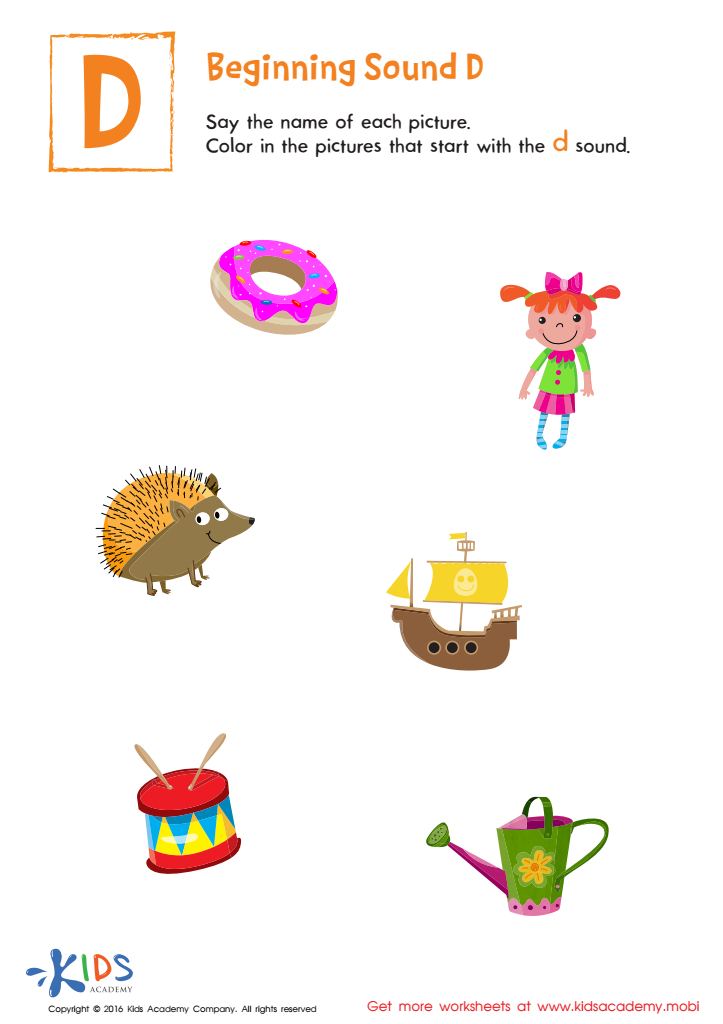

Beginning Sound D Worksheet
Reading readiness is a crucial milestone in the development of children aged 5 to 6, serving as the foundation for their future academic success. At this age, children start to understand the relationship between letters and sounds, improving their phonemic awareness, vocabulary, and comprehension skills. Parents and teachers should care about reading readiness because it directly impacts a child's confidence and attitude towards learning.
When children exhibit reading readiness, they often demonstrate better engagement in classroom activities, enhancing their overall learning experience. Conversely, if a child struggles with reading skills at this stage, it can lead to frustration, reduced motivation, and a negative self-image, hindering their long-term academic journey.
Additionally, reading readiness supports social development. Children who can read and understand stories tend to be more engaged in discussions and can share their thoughts more effectively, fostering better peer relationships.
Incorporating rich reading experiences and early literacy activities helps children build essential skills and prepares them for success in all subjects. By focusing on reading readiness, parents and teachers can ensure that children develop the necessary skills, laying the groundwork for lifelong learning and positive educational outcomes.
 Assign to My Students
Assign to My Students



.jpg)


